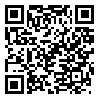Volume 14, Issue 1 (Special issue of medical science education 2024)
Clin Exc 2024, 14(1): 0-0 |
Back to browse issues page
Download citation:
BibTeX | RIS | EndNote | Medlars | ProCite | Reference Manager | RefWorks
Send citation to:



BibTeX | RIS | EndNote | Medlars | ProCite | Reference Manager | RefWorks
Send citation to:
Research in Education and Educational Scholarship: Excellence in Clinical Education. Clin Exc 2024; 14 (1)
URL: http://ce.mazums.ac.ir/article-1-844-en.html
URL: http://ce.mazums.ac.ir/article-1-844-en.html
Abstract: (1532 Views)
More than three decades have passed since the rise of the concept of "outcome-based education" in the sky of higher education. During all this time, the educational outcome, especially in the clinical context, has been metamorphosed from an abstract concept to a completely concrete matter, so that the "classroom learner" of yesterday has been renamed to the "professional in the field" of today, entrustable health professionals. In today's world, health professionals are known not only for the use of useful knowledge and the correct application of skills, but also at a higher level for the correct performance of their expected role in society. The change in the educational approach from merely thinking about the knowledge content of each discipline and carrying out stereotyped skills to playing the expected and reliable professional role has affected the structure of health profession education from all aspects, from teaching to evaluation. With this structural change, learning without using the logical principles of reasoning and without applying feedback and reflection and without changing the student role from customer to colleague and partner in the education process will not lead to a fundamental, practical and transformative outcome. The implementation of outcome-based education requires redefining the role, character and commitment of health professionals in educational curricula, and in the meantime, the unique role of the hidden curriculum, especially in clinical education, cannot be ignored. For today's students and tomorrow's professionals, reviewing the ethical standards and repeating the principles of professional ethics every day will not lead to a good outcome unless several components and indicators of the good reputation and honor of health professionals are analyzed. Clinical education in today's world, more than ever, needs to be accompanied by the needs of humanities and keep pace with the ever-increasing trend of developing new technologies. We are now passengers of a period of history when human products have more mental and physical capacities and capabilities than humans, and in the field of education, we are forced to accept the role of man-made technologies in the educational sphere. Artificial intelligence with its sophisticated procedure is the best option and solution in clinical decision-making in an atmosphere full of chaos and uncertainty. More than any other factor, this human product contributes to decision hygiene and helps clinicians in making diagnostic and treatment decisions, so its use should be fully included in the curriculum of all courses. In outcome-based clinical education, student evaluation continues until ensuring mastery of all soft and hard skills. In this educational model, evaluation is an ongoing and non-stop activity, during which the opportunity for compensation and remediation is provided for all learners with any learning style.
All that has been mentioned in this short note indicates the excellence of health profession education, especially clinical education in the last few decades, you must agree with me that the examples and themes of educational excellence cannot be obtained from educational researches alone, and perhaps educational researches are devoid of any sound and robust methodology for many educational issues. The solution in these cases is to seek refuge in other types of research such as educational scholarship. It is hoped that the combined use of educational research and educational scholarship in the not too distant future will lead to the design and implementation of responsive curricula, Programs that consider the real needs of the society on the one hand, and on the other hand, their application leads to the cultivation and training of professionals who accept the responsibility of the good and bad of their specialized services to the general society and never accept negligence and inefficiency. They don't give up, they always think about compensating for their weaknesses and strengthening their abilities, and they accept lifelong learning as an undeniable reality with all their being.
All that has been mentioned in this short note indicates the excellence of health profession education, especially clinical education in the last few decades, you must agree with me that the examples and themes of educational excellence cannot be obtained from educational researches alone, and perhaps educational researches are devoid of any sound and robust methodology for many educational issues. The solution in these cases is to seek refuge in other types of research such as educational scholarship. It is hoped that the combined use of educational research and educational scholarship in the not too distant future will lead to the design and implementation of responsive curricula, Programs that consider the real needs of the society on the one hand, and on the other hand, their application leads to the cultivation and training of professionals who accept the responsibility of the good and bad of their specialized services to the general society and never accept negligence and inefficiency. They don't give up, they always think about compensating for their weaknesses and strengthening their abilities, and they accept lifelong learning as an undeniable reality with all their being.
Type of Study: Letter to Editor |
Subject:
آموزش پزشكی
Received: 2024/04/20 | Accepted: 2024/04/20 | Published: 2024/04/20
Received: 2024/04/20 | Accepted: 2024/04/20 | Published: 2024/04/20
| Rights and permissions | |
 |
This work is licensed under a Creative Commons Attribution-NonCommercial 4.0 International License. |



